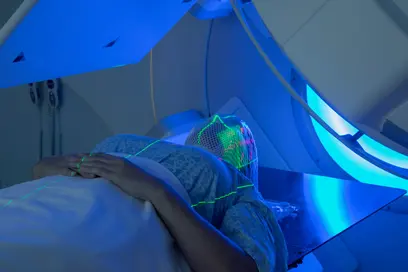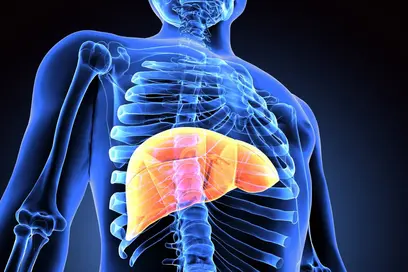Malignant brain tumors from the group of gliomas and glioblastomas are extremely difficult to treat with available therapies. While still a medical student, Lukas Bunse was involved in the development of a vaccine against a specific form of brain tumor, known as IDH1-mutated glioma.
Glioblastomas, which mainly affect middle-aged people, have an even worse prognosis than IDH-mutated gliomas. Unlike gliomas, they do not present a uniform mutation as a target antigen on their surface that could be vaccinated against. Here, Bunse and his team are testing a cell therapy approach. First, he succeeded in identifying suitable target molecules for the immune system in glioblastoma cells. The researchers then equipped the patient's own T cells with receptors for these tumor proteins outside the body.
The T cells equipped in this way are then transferred back to the patient and can specifically hunt down brain tumor cells. These approaches have already proven successful in mice. Initial clinical trials of this innovative cellular immunotherapy with transgenic T cells are now in preparation.
Lukas Bunse studied medicine at Heidelberg University and University College London. After completing his medical doctorate, he completed another doctorate in biology in 2020. He is a clinician scientist at the Mannheim Medical Faculty of Heidelberg University and has been a senior physician in neurology since 2024. He also conducts research as team leader in the Clinical Cooperation Unit Neuroimmunology and Brain Tumor Immunology at the DKFZ. After receiving the Ruprecht Karls Prize in 2018 and the Hella Bühler Prize in 2019, which is endowed with 100,000 euros, he was awarded the Novartis Prize for therapy-relevant immunological research by the German Society for Immunology in 2023. In 2025, he was awarded the Heinz Maier-Leibnitz Prize, which is considered Germany's most important award for young scientists.
The founder of the prize and honorary senator of Heidelberg University, Manfred Lautenschläger, awards the Lautenschläger Prize for Young Scientists to outstanding researchers at Heidelberg University in the early stages of their careers.




